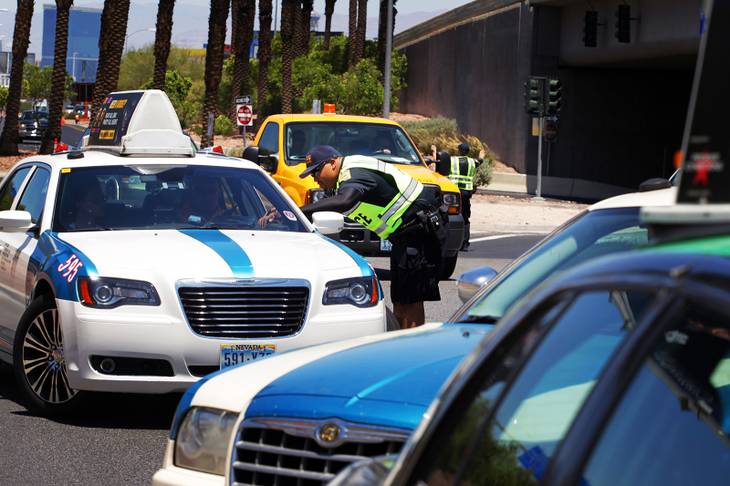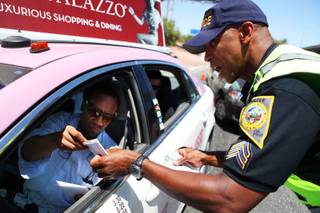The Nevada Transportation Authority, which regulates limousines, buses and taxis operated outside Clark County, has agreed to conduct a statewide test of software to detect taxi long-hauling.
Frias Transportation Infrastructure, also known as FTi, is testing RideIntegrity, a cloud-based hardware and software system that monitors vehicle movement in real time and creates a record of vehicle routes.
The company behind RideIntegrity, run by the same managers of the Frias Transportation Group, which has five taxi operations in Clark County, recently demonstrated the system to the Transportation Authority.
The three-member authority board approved a pilot program for a minimum of 90 days and a maximum of a year. Funded by FTi, the pilot program will include monitoring 150 taxis, sedans and limousines.
“This system is going to put enforcement tools into the hands of our enforcement officers that we could never of imagined and allow them to deal with issues immediately as opposed to taking many man hours of investigation after the fact,” said Andrew MacKay, chairman of the Nevada Transportation Authority in a release issued by the company.
Mark James, CEO of FTi, said his company is in the process of acquiring patents on the RideIntegrity system.
The company also is scheduling a demonstration for members of the Nevada Taxicab Authority, which regulates the 16 cab companies operating in Clark County.
James said he believes the system could put an end to long-hauling, the illegal practice of transporting passengers via longer, indirect routes to run up a higher fare.
James didn’t disclose the cost of the system but said the company has spent millions of dollars developing it.
He envisions regulatory agencies paying for the system through software licensing fees and small transaction charges on vehicles. He said over time, the system could save hundreds of thousands of dollars in enforcement costs.

